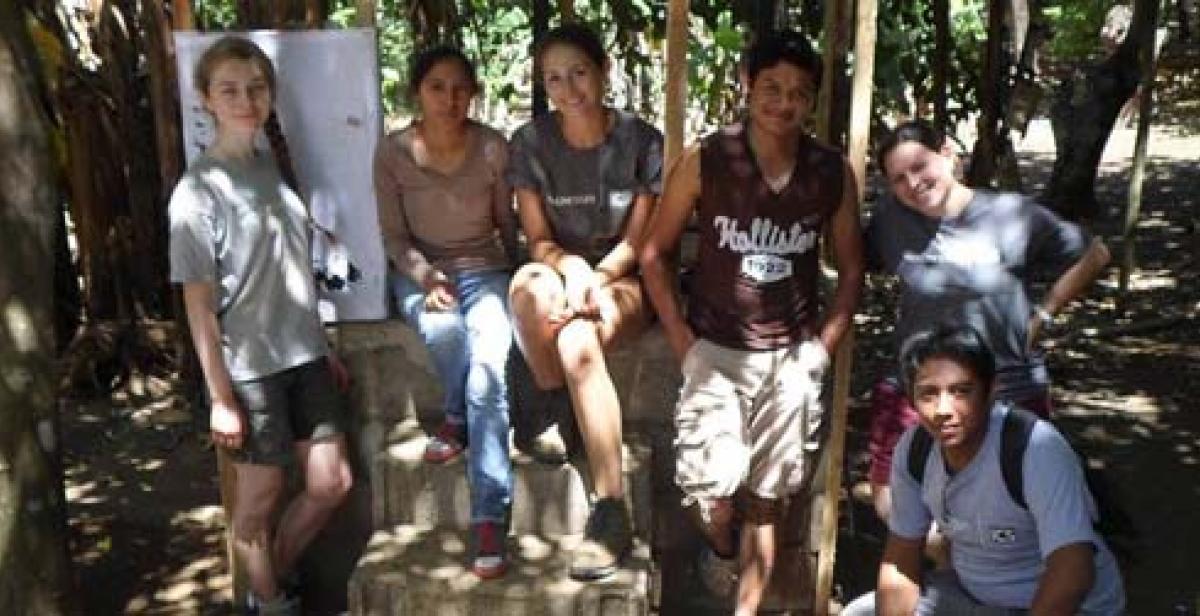Dust, sweat, aches and the occasional minor injury; all signs of hard work. We have powered through our sixth week with a renewed vigor, fresh after a productive mid-term review at the weekend and ready to build.
Thus far, our work in Masaya has revolved around the organisation of community activities such as workshops, surveys and English classes for both the Nicaraguan volunteers and school children. This week, however, we have moved from desks to workbenches, changed from flip-flops to boots and exchanged the shaded indoors for the relentless heat of outside. We have been working in El Pochote, our aim being to cover the sixty eco-latrines which were constructed by previous cycles of volunteers and to therefore complete the project.
It is challenging yet highly rewarding work. We have split into small sub-teams of four or five volunteers and are all slowly hammering, digging and sweating our way around the area in different directions! In addition to the physical effort demanded by manual labour, our work is also both linguistically challenging and intellectually stimulating. In many of our small groups we lack the language skills to converse fluently and are therefore discovering creative ways in which we may solve problems and express ourselves. We may not yet be able to speak in the past tense or conjugate the subjunctive, but it is safe to say that our construction vocabulary is now faultless!
When finished, the eco-latrine project in El Pochote should have a hugely positive impact on the families living there. Prior to Progressio´s work, the community relied upon the usage of traditional latrines, which are widely acknowledged to be a source of both human illness and environmental damage. With the traditional model, waste directly contaminates the soil in which crops are grown, disease and parasites thrive and (what is possibly the most noticeable of problems) the smell is atrocious! And thus arose the need for an environmentally-friendly, resource-conserving, health-promoting alternative - the eco-latrine.
The previous two cycles of Progressio volunteers in El Pochote have constructed sixty of these latrines, all of which will serve to benefit the community. Originally, the plan proposed that families would themselves construct shelters for their latrines. Subsequent surveys however revealed that most families lack the means to do so, and hence was identified the need for ourselves to cover them.
So, how do we do it? At first, construction was a frantic and confused affair; too many hands doing the same thing, mistakes, breakages and corrections. One week in, however, and we are building like professionals. The first task is to dig four holes around the base of the latrine, each at a depth of 1.5 meters. This is by far the most harsh, long and tiring aspect of construction. These holes hold the main supporting posts which, when cut to size, are buried and compacted into the earth. The next stage is to erect the frame using no more than timber and nails. We hammer the nails (and our thumbs) until a sturdy structure stands; one which will hopefully withstand the ferocity of a Nicaraguan storm. The final part of construction for volunteers involves the securing of vinyls to the frame in order to create a waterproof, private and aesthetically pleasing shelter.
Our project is so far proving highly successful. Volunteers are labouring with passion and enthusiasm, families are both assisting with work and providing tasty local snacks to keep us going and our hard work is reflected in the growing number of fully functioning eco-latrines. It is a great privilege to be able to work in El Pochote and change people’s lifestyles for the better.
Written by ICS volunteer Anastasia Georgiou



